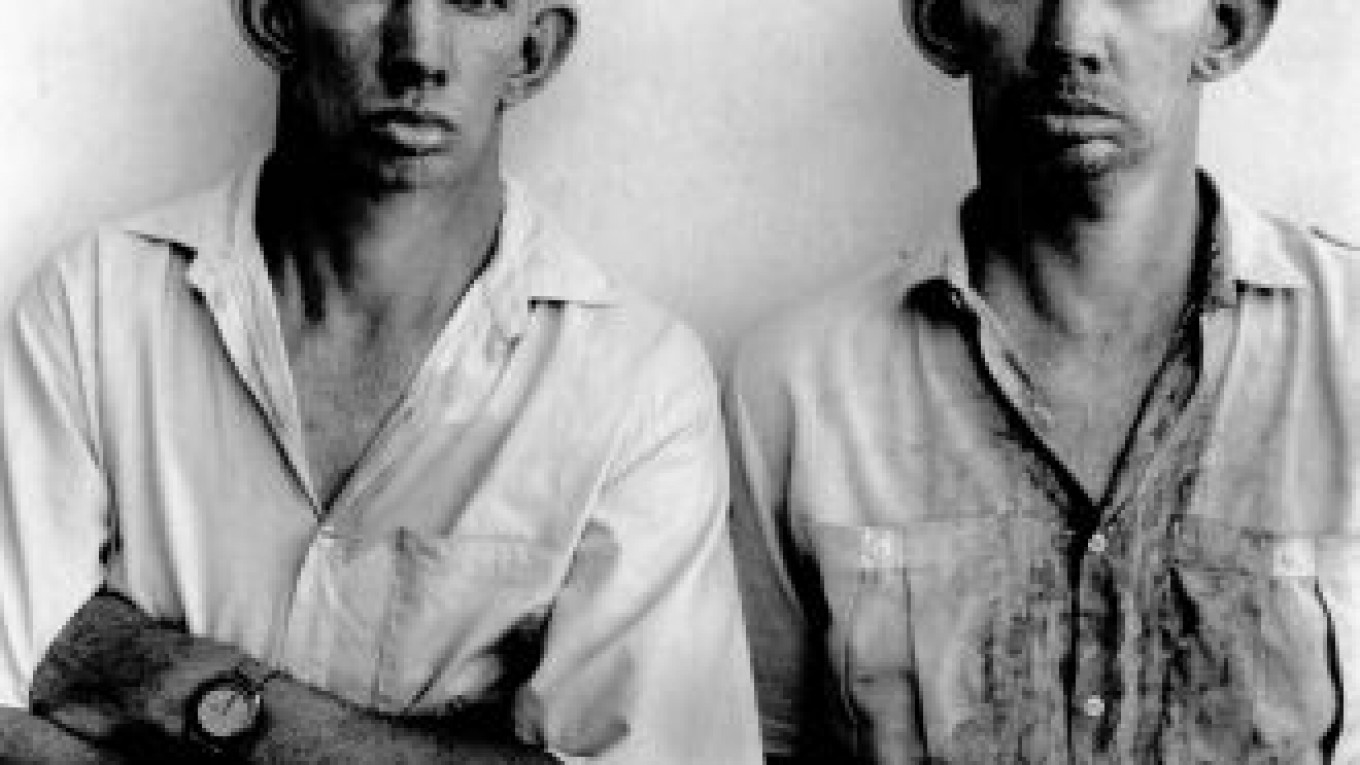Roger Ballen, one of the world’s most compelling artistic photographers, brings his often disturbing shots of an abandoned building filled with abandoned people to Moscow.
His photo series “Boarding House,” on show at the Photographer.ru gallery at Winzavod, works like many of his other pieces by fusing documentary photography with art.
“Boarding House” was shot between 2004 and 2008 at an abandoned Johannesburg warehouse-turned-transient residence. Seventy black-and-white photographs show cave-like sketches, hanging wires, ghostly people — the squatters who inhabit the building — animals and severed doll heads.
“We are interested in artists presenting social issues and their vision on such problematic concepts, and Ballen is the perfect example of that,” gallery owner Larisa Grinberg said.
Ballen grew up in New York under the influence of the Magnum circle of photographers as his mother ran the agency’s New York office. He took photos of anti-Vietnam protests in the 1960s, but almost 30 years ago, he left the United States and moved to South Africa, where he worked as a geologist and on his own documentary projects.
One of his most famous images is of the adult Dresie twins in the western Transvaal region of South Africa. It is one of a series of shocking images of the country’s rural poor, work that has brought him both praise and accusations of exploitation.
The twins were shot in 1993, and his work has become more and more abstract since then, as can be seen in “Boarding House.”
Robert Cook, the associate curator of contemporary art at the Art Gallery of Western Australia, wrote that “the drizzle and lilt of a wire, the shuffle of a shoe [and] the smear of sand on a wall are as important to the reading of the work, to its distinct power, as gestures more humanly communicative like a smile or grimace.”
“I have always seen myself as someone with a psychological view of the world,” Ballen said. “I am really much more interested in the psyche itself.”
Shooting only in South Africa, Ballen strictly uses black and white and a square format.
“Nothing is a more stable form than a square or cube,” Ballen said during a discussion of his work with art critic Yekaterina Degot late last month.
He expressed an antipathy to color photography: “I’ve been doing black and white since I was 5 years old. I don’t really like color. What worries me about color is that there is something artificial about it.”
Many wonder about how real the world is that Ballen creates, whether the objects are staged, whether people in the photographs participate in the structure of the shot. Some refuse to believe that the flash Ballen likes so much is enough to create such a sharp image with such a depth of field.
“What you’re looking at is not necessarily there. You’re seeing a photographic view of reality. Everything is transformed through my mind and through a camera. What you see is the photograph. The photograph, no matter what you do, is staged. … But without me, there are no photographs. I transformed the reality and the place of the boarding house. We all transform/develop reality in whatever we do,” Ballen said.
Ballen’s next project is on birds. Having found yet another mysterious building, Ballen is looking at the relationship between the birds, which are not let outside, and the people who live there and are not letting the birds out. “It’s quite an interesting project already. Quite well-advanced. There are a lot of interesting metaphors coming out of this place,” Ballen said.
Roger Ballen’s “Documentary Fiction” runs till Oct. 28. Photographer.ru gallery, Winzavod Center for Contemporary Art. 1 4th Syromyatnichesky Pereulok, Bldg. 6. Metro Chkalovskaya, Kurskaya.
A Message from The Moscow Times:
Dear readers,
We are facing unprecedented challenges. Russia's Prosecutor General's Office has designated The Moscow Times as an "undesirable" organization, criminalizing our work and putting our staff at risk of prosecution. This follows our earlier unjust labeling as a "foreign agent."
These actions are direct attempts to silence independent journalism in Russia. The authorities claim our work "discredits the decisions of the Russian leadership." We see things differently: we strive to provide accurate, unbiased reporting on Russia.
We, the journalists of The Moscow Times, refuse to be silenced. But to continue our work, we need your help.
Your support, no matter how small, makes a world of difference. If you can, please support us monthly starting from just $2. It's quick to set up, and every contribution makes a significant impact.
By supporting The Moscow Times, you're defending open, independent journalism in the face of repression. Thank you for standing with us.
Remind me later.


